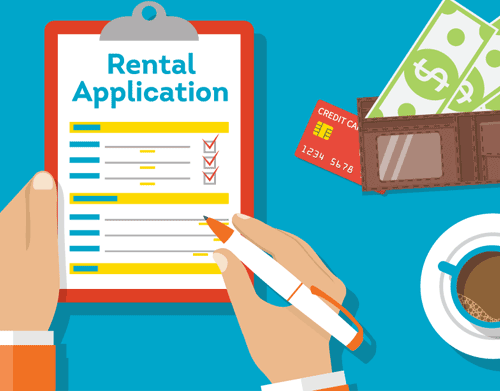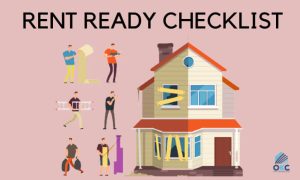Finding the right tenant is the single most important part of successful property management. A thorough screening process protects your investment, ensures steady cash flow, and maintains the integrity of your property. This guide breaks down the essential tenant screening questions every landlord should ask, categorized by intent, to help you make an informed decision.
The Pre-Screening Phase: Weeding Out Poor Fits in Your Listing
Tenant screening actually begins before you even meet a prospect. By including specific details in your property listing, you can naturally discourage unqualified applicants from applying.
Be Explicit About Requirements: State your core criteria clearly. For example: Minimum credit score required, proof of income (usually 2.5x to 3x the rent), and a clear no-smoking policy. When applicants see these requirements upfront, those who do not qualify are less likely to request a showing.
Include a Preliminary Questionnaire: Use an automated reply or a simple form for anyone who inquires. Ask for their desired move-in date and how many occupants will be living in the unit. If they need to move in four months from now and your unit is available today, you can save everyone time by letting them know it is not a fit.
Insider Advice: At Marda Management, we recommend including a high number of quality photos and a video tour in the listing. This ensures that the people who eventually book a physical showing are already 90% sure they like the layout, reducing “looky-loos.”
Financial and Employment Questions
The goal of these questions is to ensure the applicant has the long-term stability to pay rent on time, every month.
1. What is your monthly household income?
You are looking for a total income that is ideally three times the monthly rent. This ensures they can afford life’s other expenses without sacrificing rent.
2. Can you provide proof of income?
Ask for recent pay stubs, employment letters, or T4s. For self-employed applicants, ask for the last two years of tax assessments.
3. How long have you been with your current employer?
Long-term employment suggests stability. If they have just started a new job, ask about their previous work history to see if there is a consistent pattern of employment.
Insider Advice: Don’t just look at the dollar amount. Look at the “Net” income versus “Gross.” Many landlords make the mistake of calculating based on the higher number, forgetting that taxes and deductions significantly impact a tenant’s actual spending power.
Rental History and Lifestyle Questions
These questions help you understand how the tenant treats the property and how they interact with neighbors.
4. Why are you moving from your current residence?
Listen for red flags like disputes with neighbors or landlords. Valid reasons include needing more space, being closer to work, or upgrading the quality of their home.
5. How many people will be living in the unit?
This helps you ensure the unit complies with local occupancy standards and fire codes.
6. Do you have any pets?
While Ontario law has specific regulations regarding “no pet” clauses, knowing the type and number of pets helps you prepare the unit for wear and tear and manage expectations for common areas.
7. Do you smoke or vape?
This is a lifestyle question that impacts property maintenance and fire safety. Be clear about your building’s smoking policies early on.
8. Can you provide references from your previous two landlords?
The most recent landlord might be motivated to give a good reference just to get a difficult tenant out. The landlord *before* that will give you the most honest feedback.
Insider Advice: When calling landlord references, ask: Would you rent to this person again? This simple “yes or no” question often reveals more than a 10-minute conversation.
Procedural and Logistics Questions
These questions ensure that the tenant understands the rental process and is ready to commit.
9. Are you willing to undergo a credit and background check?
A tenant who hesitates or refuses is often hiding a significant financial or legal issue. This is a non-negotiable step in modern tenant screening.
10. When are you looking to move in?
Match this against your unit’s availability. Ideally, you want a tenant who is ready within 30 days of the unit becoming vacant.
11. Are you aware that we require tenant insurance?
Requiring insurance protects both the landlord and the tenant in case of fire, flood, or liability. It should be a standard requirement for all leases.
12. Do you have the first and last month’s rent ready?
This confirms they have the necessary liquidity to finalize the lease agreement immediately upon approval.
FAQ: Common Tenant Screening Concerns
What is the most important tenant screening question?
The request for a landlord reference is the most revealing. Previous behavior is the best predictor of future behavior. If a tenant has a history of property damage or late payments, it is highly likely to continue.
Can a landlord ask for a credit score in Ontario?
Yes. Landlords are permitted to ask for credit references and conduct credit checks with the applicant’s consent to assess their ability to pay rent.
How do I spot a fake reference?
Ask the “landlord” specific questions about the property that aren’t on the application, such as “Is the unit heated by gas or electricity?” or “What color is the front door?” If they can’t answer quickly, they may be a friend posing as a landlord.
Should I screen every adult who will live in the unit?
Absolutely. Every occupant over the age of 18 should undergo a full background and credit check, regardless of who is primarily paying the rent.
The Benefit of Professional Tenant Screening
Screening tenants is time-consuming and carries significant legal weight. At Marda Management, we utilize advanced background check technology and a rigorous 10-point screening process to find the highest quality tenants for our owners. We handle the calls, the credit checks, and the reference verifications so you don’t have to worry about the risks.
Contact Marda Management today to learn how we find the best tenants for your rental property.






